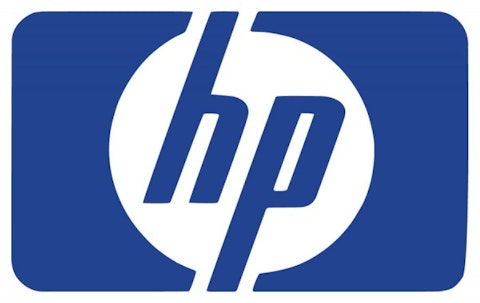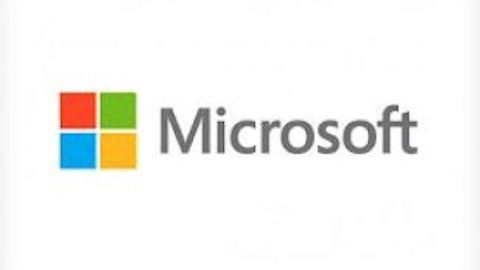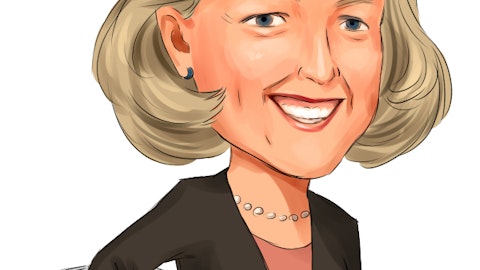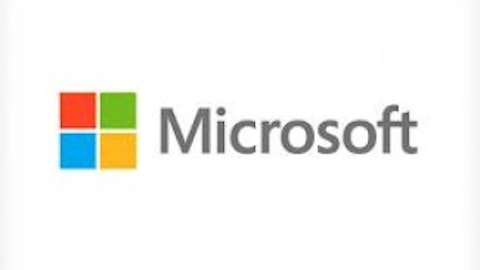Shares of Hewlett-Packard Company (NYSE:HPQ) plunged on Thursday following the company’s somewhat disappointing Q3 earnings report and guidance. Hewlett-Packard Company (NYSE:HPQ) reported adjusted EPS of $0.86 on revenue of $27.2 billion, compared with EPS of $1.00 on revenue of $29.7 billion in the prior-year period. By the end of the day, Hewlett-Packard Company (NYSE:HPQ) shares were nearly 20% below the 52-week high set earlier this month.

Hewlett-Packard YTD Stock Performance, data by YCharts
HP appears to be perpetually undervalued, as many analysts are overly focused on revenue growth as opposed to earnings and free cash flow, which are the real drivers of value in a business. As of Thursday’s close, HP’s market cap has shrunk to $43 billion, even though the company has just $1.2 billion in net debt now and will produce free cash flow of roughly $8 billion this year.

As a value investor, this free cash flow yield over 18% is incredibly attractive. Moreover, with Hewlett-Packard Company (NYSE:HPQ) approaching its zero net debt target, much of this cash flow is likely to be returned to shareholders through higher dividends and share buybacks. As a result, HP looks like a solid contrarian value investment.
Strange fall
The odd thing about HP’s big drop is that nothing really bad happened. Adjusted EPS of $0.86 came in right in the middle of the $0.84 to $0.87 outlook range that management provided in May. Revenue did come in slightly below the average analyst estimate, but the discrepancy was less than 1%.
There were no big surprises about Hewlett-Packard Company (NYSE:HPQ)’s outlook, either. The company narrowed its FY13 EPS guidance range to $3.53-$3.57, compared with a prior outlook of $3.50-$3.60. That will put HP’s earnings near the top of the original guidance provided last October for EPS of $3.40-$3.60.
The biggest “negative” was CEO Meg Whitman’s admission that HP is unlikely to post revenue growth in FY14, whereas in May she had said that revenue growth was still possible for next year. However, this disclosure seems less dire if you consider that analysts already expected a 2% drop in revenue next year.
What’s going on here?
It’s impossible to reliably explain short-term stock price fluctuations. However, the most plausible explanation for the market’s severe reaction to HP’s earnings report is that many people expected another earnings beat this week, after the company came in ahead of expectations with its last two earnings reports. Indeed, I thought there was a good chance that the company would beat estimates and raise its FY13 guidance again.
Hewlett-Packard Company (NYSE:HPQ)’s solid but uninspiring quarterly earnings clearly did not meet this standard. The fact that HP stock had more than doubled since late November also probably inspired investors with shorter time horizons to sell. With revenue growth now “postponed” until FY15 (or later), HP’s rapid multiple expansion was destined to end.
Where will earnings go?
The biggest risk for long-term HP investors is that declining revenue will overshadow the company’s cost cuts and lead to lower earnings. (For reference, FY13 will be the second year in a row that HP has experienced declining revenue and earnings.) On the other hand, if HP can grow earnings next year, it will dispel many of the bears’ worst fears.
Fortunately, I expect HP to hold EPS flat or better in FY14. While HP has started to see significant benefits from its cost-cutting in the past quarter or two, this restructuring savings will probably accelerate next year. At the beginning of FY13, only 11,700 positions had been eliminated, whereas headcount reductions will reach 26,000 by the end of the fiscal year. Real estate and other non-payroll savings will also probably grow next year.
On the flip side, Hewlett-Packard Company (NYSE:HPQ)’s revenue has slid by approximately by 8% this year but will probably decline by a smaller amount in FY14. The lower base revenue will create an easier comparison. In addition, the end of Windows XP support next April — which will stimulate higher PC replacement demand — and new products such as Moonshot low-power servers will provide counterweights to revenue pressure elsewhere in the business. The combination of lower revenue loss and more restructuring savings should allow HP to maintain or grow EPS next year.
Longer term, HP should be able to return to revenue growth after shifting more of its business to up-and-coming technologies. While many of HP’s product lines are declining, the company does have newer products like its “converged storage” solutions that are growing rapidly. Over time, the growth in these newer businesses will be better able to offset declining revenue and earnings elsewhere in the company.
Waiting for a signal
At its current price, Hewlett-Packard Company (NYSE:HPQ) appears to be significantly undervalued despite the challenges it faces. With the company trading for just 5.5 times free cash flow, there is a good margin of safety for value investors willing to wait for earnings improvement a few years down the road. However, investors who are more risk averse may want to wait until after the company’s annual analyst meeting in early October. At that time, we will get a better sense of the near-term outlook and the timeline for the rest of HP’s turnaround process.
The article HP’s Strange Fall: What Should You Do? originally appeared on Fool.com and is written by Adam Levine-Weinberg.
Fool contributor Adam Levine-Weinberg owns shares of Hewlett-Packard. The Motley Fool has no position in any of the stocks mentioned.
Copyright © 1995 – 2013 The Motley Fool, LLC. All rights reserved. The Motley Fool has a disclosure policy.




